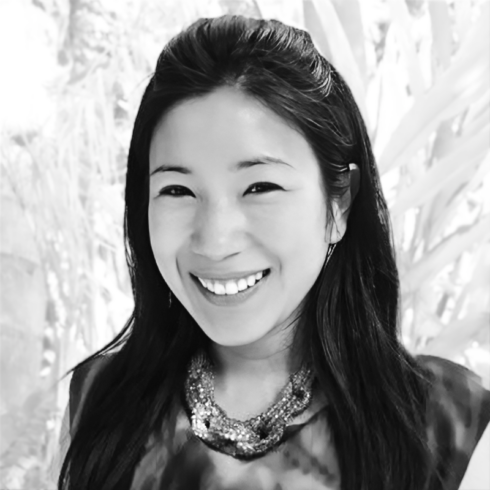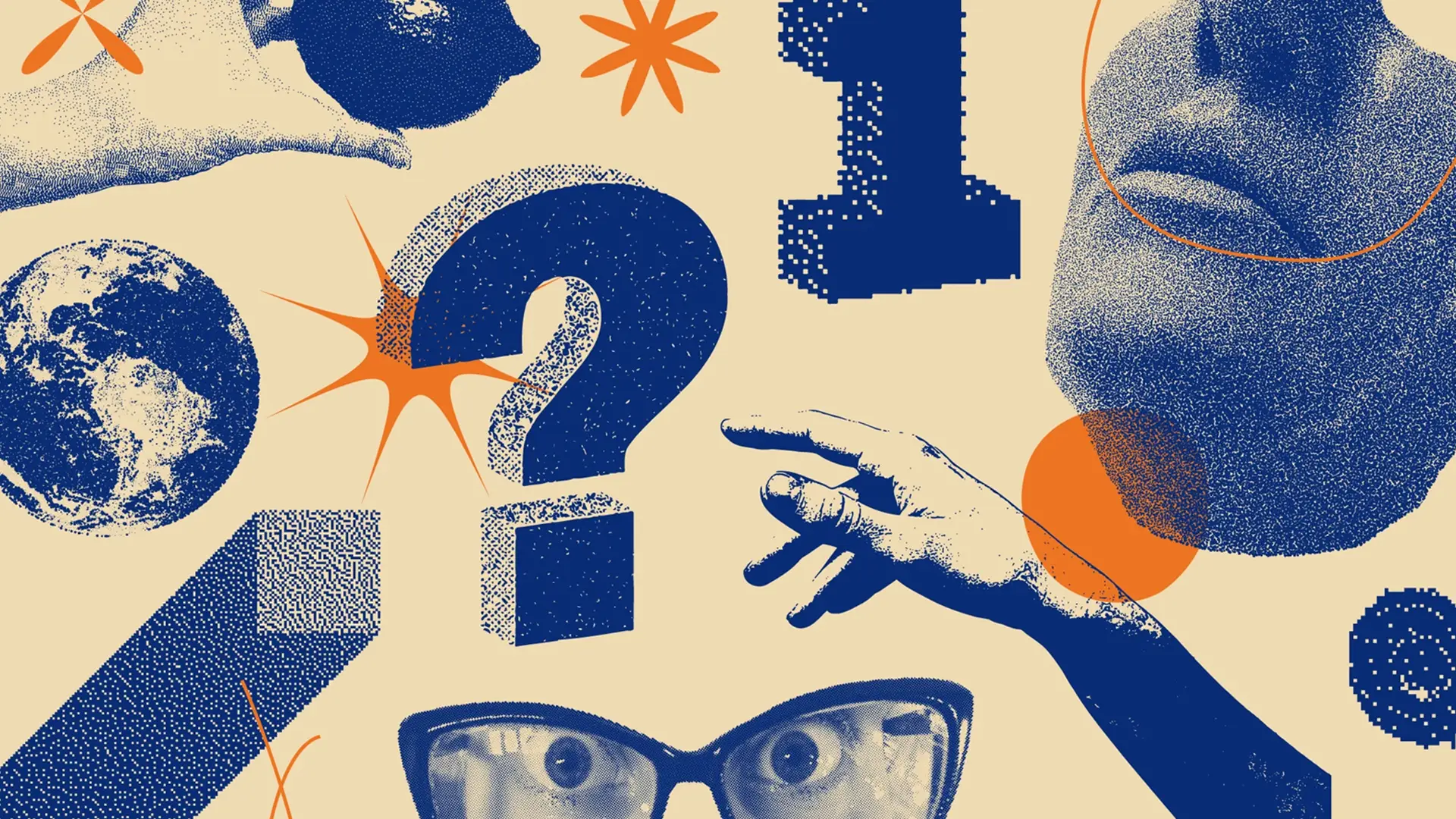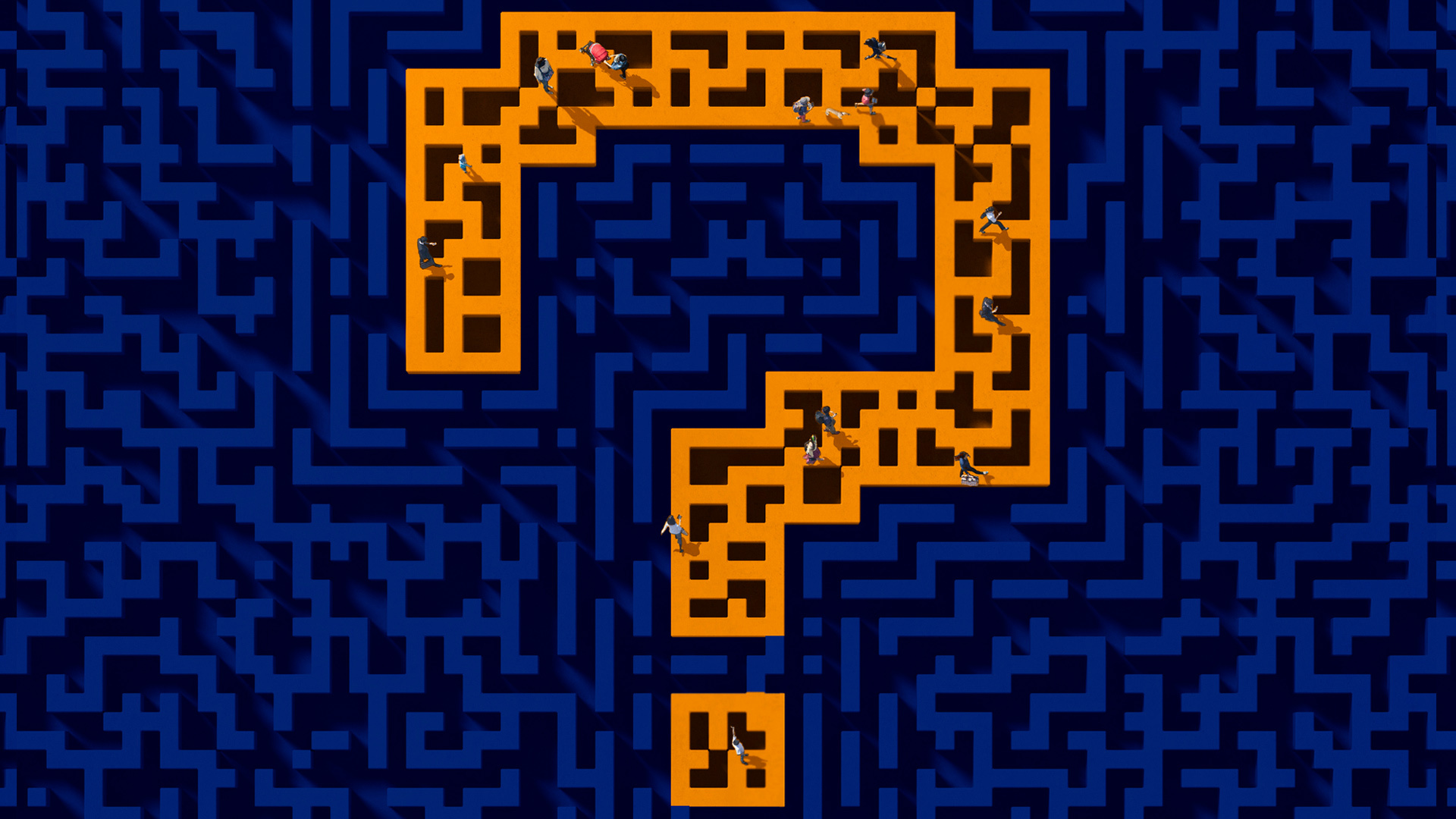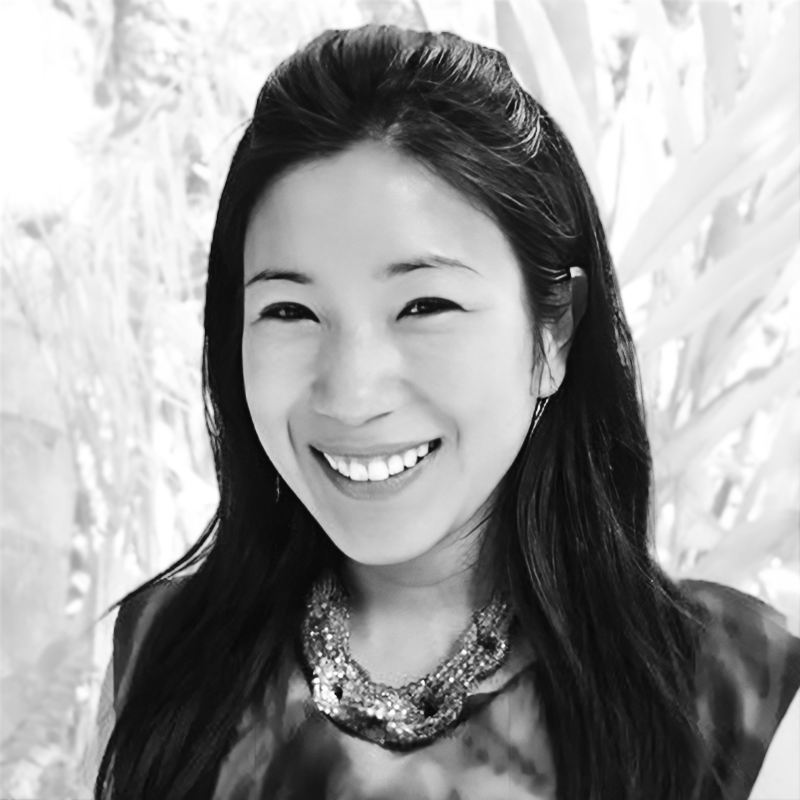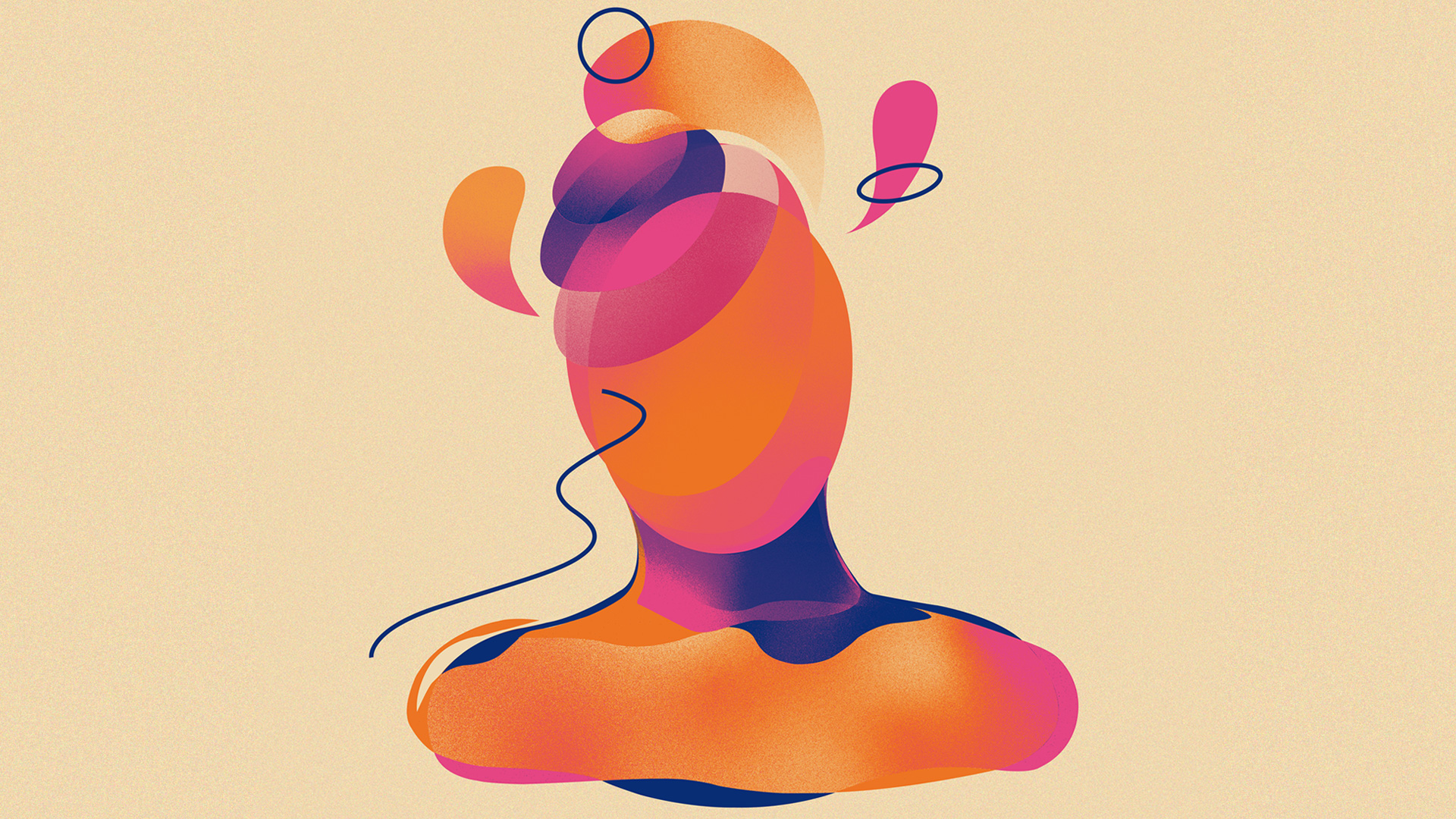
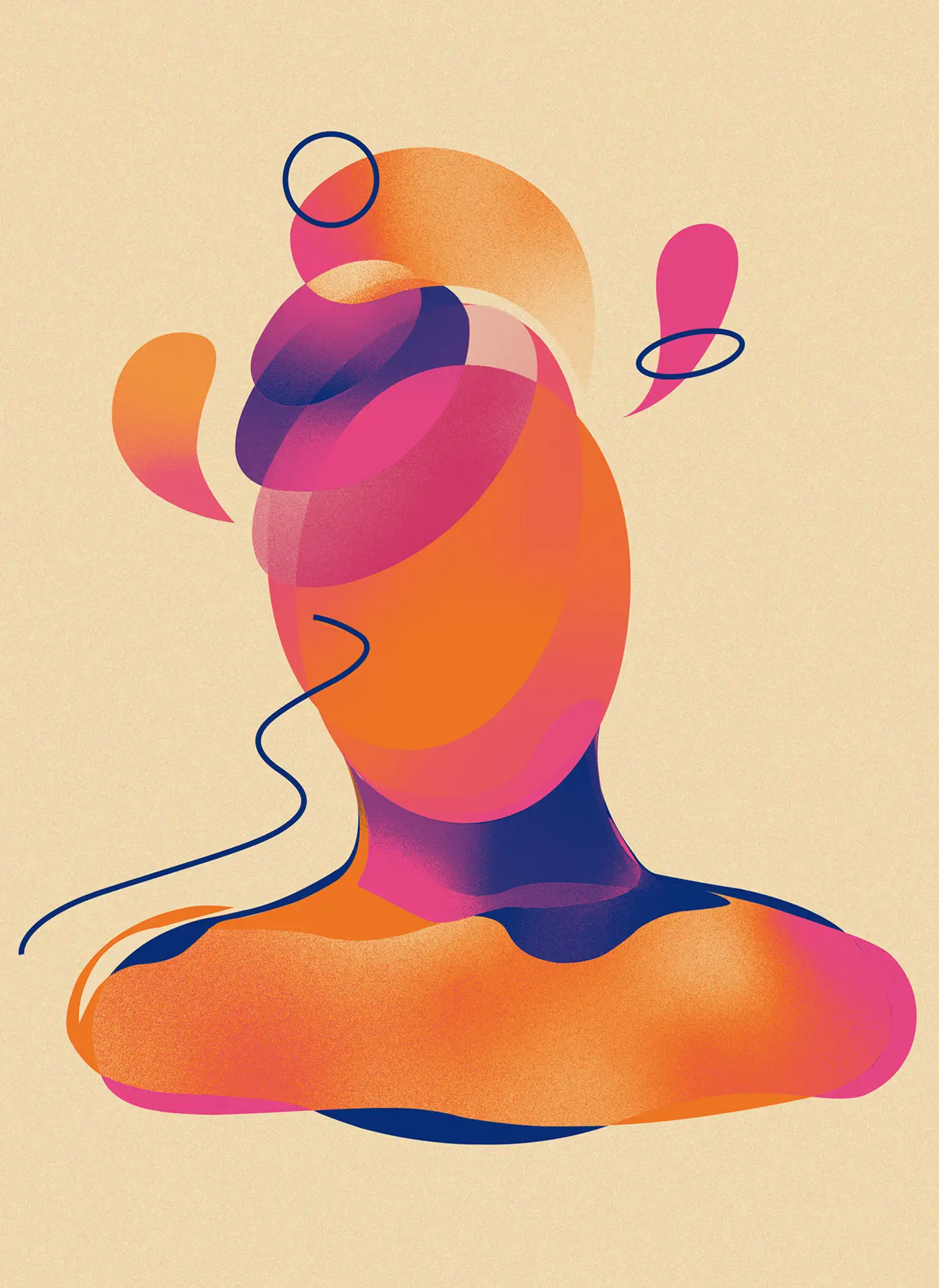
Key Takeaways
- The designer's portfolio should be thoughtful and well documented, and they should have a plan for showcasing their work.
- Ask the designer to walk through a favorite project, defend their design decisions, and give credit where it's due.
- Ask questions that uncover their passion for design, like who influenced their career and what books informed their design philosophy.
- Consider the intangible cultural fit factor for long-term hires.
Choosing the right designer can be difficult, especially when you can't tell the difference between a vector and a bitmap graphic. Not to worry. I'll teach you what you need to know (and what you don't) to help you interview a designer for your business or project—all without having to pay for an art school student loan. Lucky you!
First, I'm going to assume you've already set up a meeting and are preparing for a few candidates to show up to your office.
You did? Good!
First things first: did the designer show up on time? Don't give them leeway because they're creative. A good designer will have every bit as good a business sense as you do. There's a chance that if they show up late to your first meeting, the pieces of your project will also come late—which means a lot of calls to them so you can find out the progress of your project. Not the best use of your time.
Okay, now you've covered all the niceties (offered coffee, exchanged handshakes), and the designer is sitting in front of you. Let's get started!
Dig into their portfolio
Have the designer present their portfolio. This can be printed, on a website, or presented to you on a tablet. It doesn't make any difference. What does matter is your opinion of their work. There's a lot to be inferred from a thoroughly documented and well thought out portfolio. Here's a few questions to ask yourself as you get the presentation:
- Does their work appeal to you?
- Does the presentation of their work appeal to you?
- Are you absorbing the details of each project (good) or compelled to quickly move on to the next piece (not so good)?
- Did you feel there was a plan for showcasing the work in a certain order?
- And the big one: is the piece well designed?
Here's the reason for that last one: the designer has FULL freedom in deciding how their work is presented. If it's not well designed, then you should start to wonder whether this is the designer for you.
A caveat: be careful not to limit yourself by looking for a designer who has done work similar to what your company does. Though this might make sense if you're in an industry with many legal restrictions (like pharmaceutical or finance), you shouldn't pigeonhole based upon industry experience alone.
A talented designer will have a broad range of abilities and will be able to adapt to work that appeals to your customers.
Make them walk the walk
Have the designer walk you through a favorite project, presenting and defending their design decisions.
It's important that the designer is able to sell the work and the thoughts behind it, because a good design will not sell itself. Part of the designer's job is to present the work to you in a clear, compelling way.
Here's a good way to ask that: “Tell me about your best project and the process you had to go through. What made it great and how you overcame obstacles along the way?”
Make sure they're giving credit where credit is due. Find out what they did on this particular project (or, in fact, any piece in their portfolio):
- If they are a web designer, did they write the copy as well? (Many times this is a copywriter's job.)
- Illustrate it? (Could have been done by an illustrator.)
- Draft up the wireframes? (A UX or visual designer may do this.)
Ask them to be clear about what parts of the project they created.
Ultimately design is about communication: did they achieve that with this project?
Ask questions
Now it's time to find out more about your prospective designer. Here's a few good starters:
- “Who have been major influences in your career?”
- “What books have informed your design philosophy?”
- “How do you keep up on current design trends?”
You don't necessarily need to know any of these concepts or design superstars; you're just looking to uncover whether or not they are passionate. And what you want is passion!
Some of your other questions will depend on the type of designer you're looking for, whether it's someone who does straight production (think of a fastidious house painter) or produces highly conceptual work (think amazing architect).
Here's a breakdown of some of the roles and questions you'll be asking:
JUNIOR DESIGNER
Look for enthusiasm. They were recently in school where they had exposure to tons of ideas that they can bring to the table. What schools of thought or authors or designs inform their thinking? If you're hiring a recent grad, look for work beyond class projects. If they've gone out and sought projects themselves or have had any kind of internship, it's a good sign that this junior bee is overflowing with creativity. (They also give you places to check references!)
PRODUCTION DESIGNER
Do you need a cut and dry production designer? Print or web? Good production work can only be done by meticulous people—check for any typos on the résumé! Ask about a challenging timeline (there will be war stories; there always are!): how did they approach it, and what was the end result? You want an artist who's going to produce error-free, detail-oriented work very efficiently.
GRAPHIC DESIGNER
You need someone with good fundamentals, who knows how to do layout and production work in addition to concepting ideas and interfacing with developers to bring the designs to life (if it's a digital project).
It's important for the designer to have experience working with marketers to help them express whatever they need. Ask them to give an example of how they translated a marketing message into a piece of visual communication. Ask for an example of a time when the designer worked with a client who often changed their mind. Did they accommodate and succeed in producing collateral on time and within budget? Or, did they push back in order to stay “true” to their vision? (Hint: it's not about their vision—it's about your bottom line.)
BRANDING/IDENTITY
This is an easy one—think back to their portfolio. It should have been filled with lots of examples of logos the designer created, either for paid gigs or for fun. This is the kind of thing highly conceptual designers will do naturally. It's also really important to see the designer's process of creating logos, the iterations and variations that went into the final piece. If you're not seeing those revisions in the portfolio, ask for a PDF. You want to see how they can take an idea and evolve it, taking into account feedback from various stakeholders.
DESIGNER/DEVELOPER
It's important to ask what technologies they are comfortable with. For example, if you need an email newsletter designed and coded, have them walk through such an example and ask to see the HTML/CSS (which you could then send to your internal development people to double check that it's cleanly coded). Does your email need to be responsive? Integrated with the Salesforce, EventBrite, an ecommerce platform? Check to make sure they have relevant experience to what you need done.
Do they fit?
Last but certainly not least, consider the intangible, je ne sais quoi factor: culture fit, which is often more than 50% of the equation. You can call it a temperature check, litmus test, or a gut feeling. You know your own culture best, so be sure to ask questions around culture fit specific to your organization. This is essential for long-term hires, not so much for someone who is doing your logo. (Though, if they will be interacting with your team, you will want to make sure they can play well with others.)
And there you have it! All the design knowledge you need in one short blog post.
Of course, if you need help or have any more questions, we're here for you! We spend a LOT of our days working with and interviewing designers. We're happy to share our knowledge!
Additional resources
Did you find the tips and strategies in this article helpful? Learn more expert tips from our expert team of recruiters by visiting these resources:
- Looking for useful creative interview questions?
- Check out these must-ask design interview questions.
- Peek at this article to find helpful leadership interview questions.
- Learn a few ways to improve your interview process.
Related
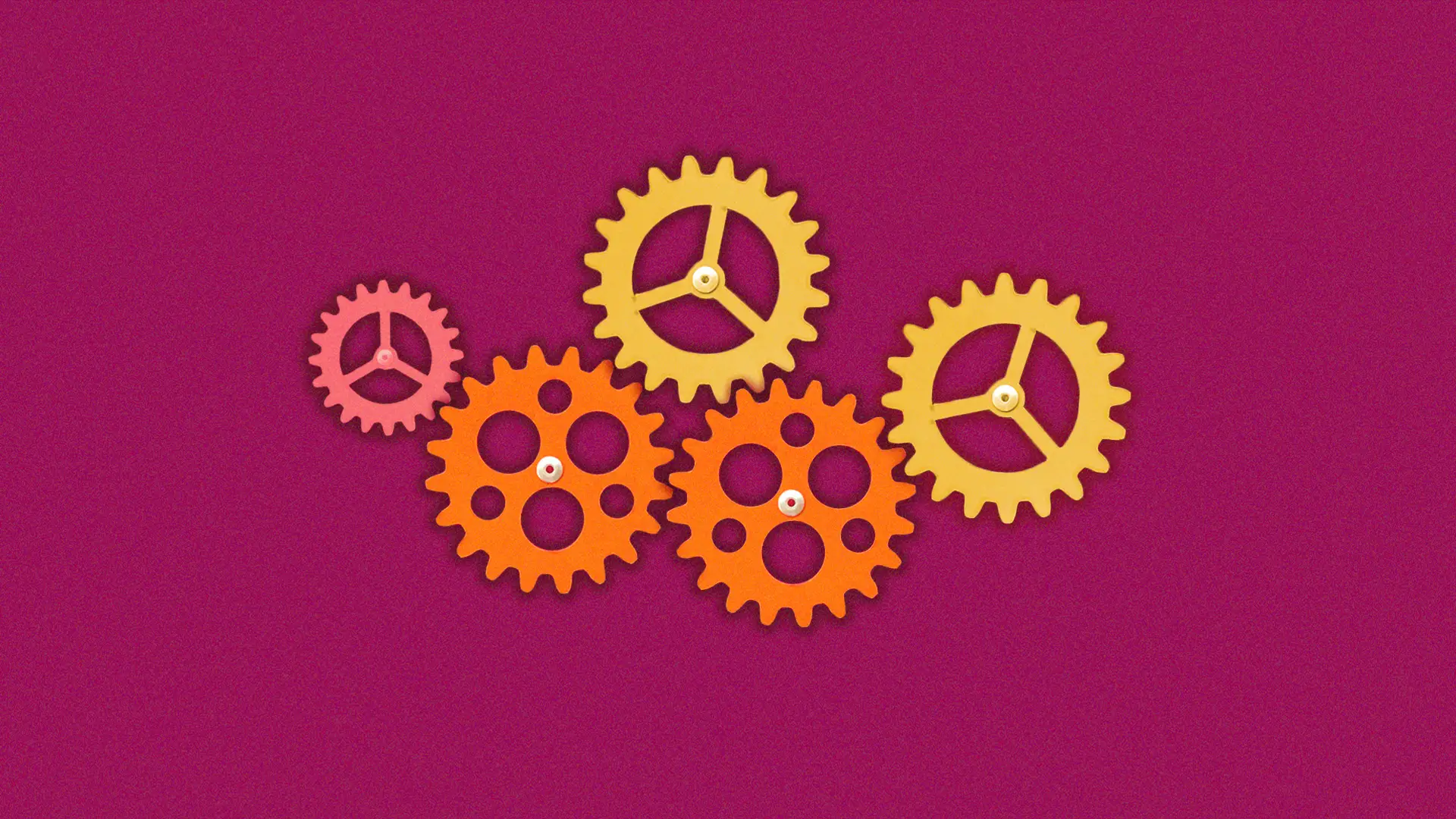
Great brand collaborations are the best to strengthen identity.
Design & Experience, Insights & Trends, Marketing & Creative, Beauty and Fashion

Consumer demand and policy are driving EV market growth.
Development & Technology, Insights & Trends, Automotive
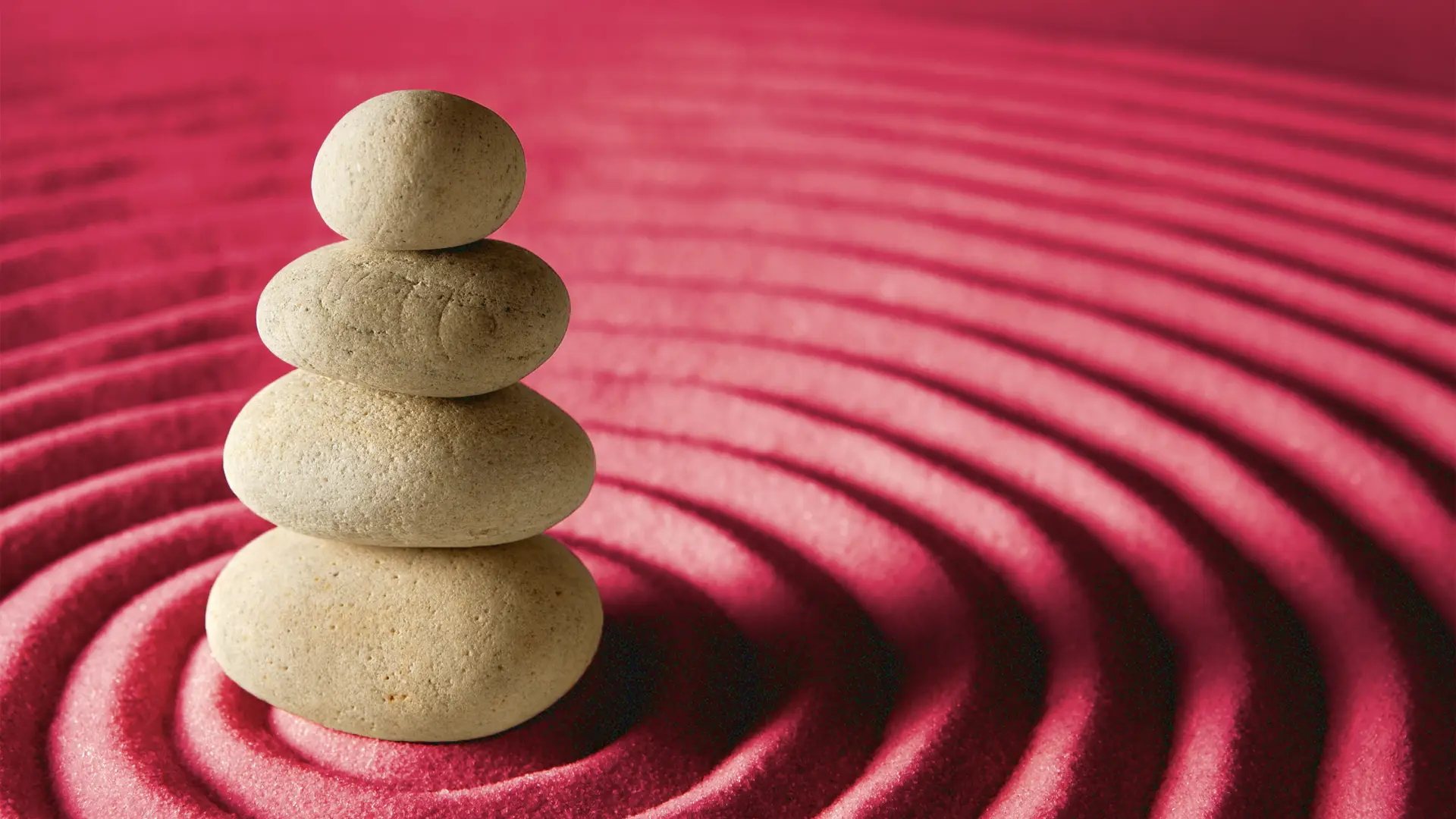
Are you missing opportunities to improve health screenings?
Design & Experience, Marketing & Creative, Health
